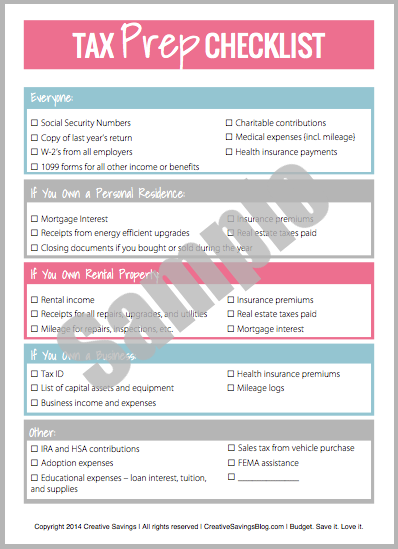7 Tips for Keeping Tax Paperwork: How Long?

Introduction to Tax Paperwork Retention

Managing tax paperwork can be overwhelming, especially if you're unsure about how long to keep different documents. A structured approach to keeping tax records can not only help you stay organized but also ensure you're compliant with tax laws. Let's delve into understanding the importance of retaining tax-related documents and how long each should be kept.
Why Keeping Tax Documents is Important

Tax documents serve as critical evidence of income, expenses, deductions, and credits claimed on your tax return. Here's why keeping them is so important:
- Audit Protection: In the event of an IRS audit, having the right documentation can help substantiate your tax return filings.
- Legal Obligation: There are legal requirements to keep records for a certain period.
- Loan Applications: Banks might require tax records when you apply for a loan or mortgage.
- Property Sales: When selling property, records can affect your tax liability.
General Guidelines for Record Retention

While individual circumstances might dictate longer retention, here are some general guidelines:
| Document | Retention Period |
|---|---|
| Annual Tax Returns | Permanently |
| W-2 Forms | 7 Years |
| Payroll Tax Records (Employee payroll) | 4 Years |
| Receipts for Expenses | 3 Years |
| Home Purchase/Improvement Records | As Long as You Own the Property |

Tips for Organizing Tax Documents

Keeping organized is as crucial as knowing what to keep:
- Use a Filing System: Whether it's digital or physical, a filing system with labeled categories (e.g., Income, Expenses, Investments) helps in quick access.
- Scan and Store: Going digital can save space and provides an extra layer of security.
- Regular Cleanup: Annually review and purge outdated documents.
- Use Cloud Storage: Back up your records in the cloud for easy retrieval and protection from physical loss.
7 Tips for Keeping Tax Paperwork

1. Know the Statute of Limitations

Each document has its own retention period, guided by the IRS statute of limitations. Here’s a quick overview:
- If you fail to report income and it’s over 25% of your gross income, the period extends to 6 years.
- If you never file a return or it’s fraudulent, keep records indefinitely.
2. Retain Records of Investments

For investments like stocks or real estate, maintaining a record of purchase, sales, and related expenses is crucial:
- Stock transaction records should be kept for 7 years after selling the stock.
- Keep records of real estate transactions for as long as you own the property and 3 years after selling.
3. Business Tax Records

If you’re running a business, you need to keep records for:
- Employment taxes: 4 years after the tax is due or paid, whichever is later.
- Corporation income tax returns: 7 years.
- Partnership tax returns: 7 years.
- Excise tax returns: 4 years.
4. Keep Personal Tax Records

For individual filers, the retention periods are:
- Income tax returns: Permanently.
- Bank Statements: 3 years.
- Receipts for Taxes: Keep until the statute of limitations ends or the return is audited.
- Home Purchase Records: Retain them for as long as you own the property, plus 3 years after sale.
5. Maintain Inheritance Records

Inheritance documents should be kept for:
- Stock or Property: Keep records indefinitely.
- Death Certificate: Keep a copy in a safe place.
- Will and Trust: These documents should be retained permanently.
6. Document Sale of Property

When selling property, you’ll need:
- Sales Deed: Keep it permanently.
- Receipts for Improvements: Retain for 3 years after the property sale.
- Home Equity Loans: Retain these documents as long as you have a mortgage.
7. Keep Retirement Plan Documents
Retirement plan documents are vital:
- 401(k) or IRA Contribution Records: Keep indefinitely or at least until all funds are distributed.
- Retirement Account Statements: Retain them for 7 years from the year of the statement.
🧰 Note: Always review IRS guidelines, as they can change over time.
By following these guidelines, you're not only staying compliant but also organizing your financial life effectively. Knowing when you can dispose of or digitally archive your records ensures you're not keeping more than necessary, while still being prepared for any audits or legal requirements. Remember, being proactive with your tax records can save you from unnecessary stress and potential penalties in the long run.
Can I store my tax documents digitally?

+
Yes, you can store your tax documents digitally. It’s advisable to scan and keep electronic copies, ensuring they’re backed up securely.
What if I’m missing some tax documents?

+
If you can’t find some documents, contact the issuer (like banks, employers, or investment companies) for replacements or a statement of income.
How can I simplify my tax records?

+
Use accounting software or apps to automatically categorize and store your receipts and records, reducing the need for manual sorting.



